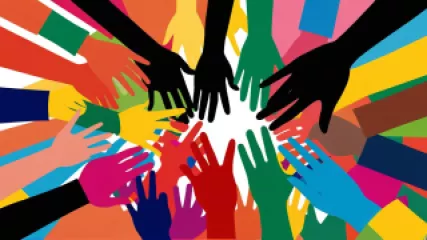Embracing Neurodiversity: A Path to Mental Health and Coaching Success
Neurodiversity is a concept that challenges the traditional understanding of mental health and cognitive differences. It recognizes and embraces the fact that neurological differences, such as autism, ADHD, dyslexia, and other conditions, are simply natural variations of the human brain. Rather than pathologizing these differences, neurodiversity celebrates them as valuable and necessary for the diversity of human experience.
The Power of Neurodiversity
Neurodiversity promotes the idea that there is no one "normal" or "typical" brain. Instead, it acknowledges that each individual has unique strengths, perspectives, and ways of processing information. By embracing neurodiversity, we can unlock the potential of individuals who have long been marginalized and overlooked in traditional society.
While the concept of neurodiversity is relatively new, its impact is already being felt across various fields, including education, employment, and mental health. Recognizing and accommodating different learning styles and cognitive abilities can lead to more inclusive educational practices and improved outcomes for all students.
In the workplace, embracing neurodiversity can enhance innovation, problem-solving, and creativity. Neurodiverse individuals often excel in areas such as pattern recognition, attention to detail, and critical thinking, bringing unique perspectives to teams and projects.
Neurodiversity and Mental Health
One area where the principles of neurodiversity are particularly relevant is mental health. Traditional approaches to mental health often focus on fixing or normalizing individuals who deviate from the perceived norm. This can lead to a sense of alienation, shame, and self-doubt for neurodiverse individuals.
However, by embracing neurodiversity, we can shift our approach to mental health and create supportive environments that celebrate and capitalize on individual strengths. Neurodiversity acknowledges that mental health is not solely defined by the absence of symptoms but is a complex interplay of various factors.
Neurodiversity therapy sessions online can provide a safe space for individuals to explore their unique experiences and develop coping strategies tailored to their specific needs. These sessions focus on strengths-based approaches, empowering individuals to embrace their neurodivergent identities and navigate the challenges they may face in a neurotypical world.
Neurodiversity Coaching: Unlocking Potential
Neurodiversity coaching is another powerful tool that can help individuals with cognitive differences thrive. Neurodiversity coaches understand the unique strengths and challenges associated with different neurodivergent conditions. They work collaboratively with clients to set goals, develop strategies, and build on their inherent abilities.
Coaching sessions provide a structured and supportive environment where neurodiverse individuals can explore their talents, interests, and aspirations. By focusing on strengths and building self-awareness, neurodiversity coaching enhances self-confidence, self-advocacy, and overall well-being.
Neurodiversity coaching is not about "fixing" or "normalizing" individuals. Instead, it is about harnessing their unique potential and empowering them to navigate life on their terms. Through personalized strategies and support, individuals can overcome challenges, set realistic goals, and achieve personal and professional success.
Online Resources and Support for Neurodiversity
The internet has become a valuable resource for neurodiverse individuals seeking support and community. Online platforms offer a wealth of information, resources, and forums where individuals can connect with others who share similar experiences.
Neurodiversity mental health resources online provide access to articles, videos, and webinars that promote understanding, acceptance, and self-advocacy. These resources help individuals gain insights into their own neurodivergent identities and equip them with tools to navigate challenges effectively.
Additionally, online support groups and communities allow individuals to connect with others who share similar experiences. These communities provide a sense of belonging, validation, and understanding, which can be particularly valuable for neurodiverse individuals who may feel isolated or misunderstood in their offline lives.
The Future of Neurodiversity
As awareness and understanding of neurodiversity continue to grow, the potential for positive change in society becomes increasingly evident. Embracing neurodiversity is not only a path to individual well-being but also a means of creating a more inclusive and compassionate world.
By challenging the traditional notions of "normal" and recognizing the value of diverse cognitive abilities, we can foster an environment where all individuals can thrive. This includes reimagining education systems, expanding employment opportunities, and embracing different approaches to mental health and coaching.
As we move forward, it is essential to continue advocating for neurodiversity and promoting the rights and dignity of all individuals, regardless of their neurological differences. By doing so, we can create a society that celebrates the rich tapestry of human minds and ensures that everyone has the opportunity to reach their full potential.
Neurodiversity is not a disease that needs to be cured; it is a unique expression of human diversity that should be celebrated and embraced.Carroll Watkins






